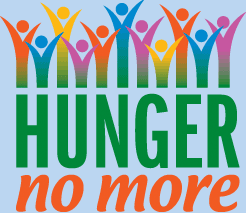 August 16, 2009 - The Food and Agriculture Organization of the United Nations (FAO) is a specialized agency of the United Nations that leads international efforts to defeat hunger. FAO's latest estimates put the number of chronically hungry people at 1.02b, up from 915m in 2008, Uganda’s West Nile region isn’t exempt from these global figures save for reasons that force people to go hungry.
August 16, 2009 - The Food and Agriculture Organization of the United Nations (FAO) is a specialized agency of the United Nations that leads international efforts to defeat hunger. FAO's latest estimates put the number of chronically hungry people at 1.02b, up from 915m in 2008, Uganda’s West Nile region isn’t exempt from these global figures save for reasons that force people to go hungry.
Tobacco growing has partly contributed to the famine in West Nile. First and foremost, tobacco growing has led to destruction of forests and fruit trees to the point that the region now faces drought, reduced honey production and general environmental degradation. Because tobacco production also requires dedicating labour, land and other resources at the expense of growing subsistence crops, the potential for hunger and starvation is imminent. My estimation is that over one million people are engaged in tobacco value chain in Uganda. According to BAT, there are 17,500 registered tobacco farmers in West Nile. With such a high number of people engaged in tobacco and neglecting food production, what do we expect?
Above all, in West Nile, tobacco is grown by the poor, sold at throwaway prices determined by tobacco companies, processed by low-paid workers, sold to the poor and used by the poor, the majority of whom starve, stay poor, get sick while generating wealth for multinationals. With most profits going to middle men (tobacco buyers) and multinationals, farmers are left with no option but starvation after failure to raise enough money to buy food whose production is often ignored.
The government should inform of seed inputs and subsidies support shift from tobacco to cultivation of other alternative crops with less requirements than tobacco.
Reference: Tobacco farming killing food production in West Nile, Denis Lee Oguzu - West Nile Rural Development Agency, Daily Monitor, 8/13, 2009.
Bringing the World of Tobacco Control closer together..
Uganda - growing tobacco at the expense of growing subsistence crops..
Subscribe to:
Post Comments (Atom)


To Provide Public Awareness
Purpose
About Us
Contact Us
2008 HIGHLIGHTS
TOPIX PAPERS - 2008 & 2009..
Archive
-
▼
2009 (1446)
-
▼
08/16 - 08/23 (29)
- America's hopsitals - more hospitals are moving to...
- Updated - England - tabacco display ban - the Lord...
- Mumbai, India - NGO activists want closure of hook...
- United KIngdom's NHS spending more to stop smokin...
- Italian resort town fines kids that smoke...
- Komtar, Penang, Malaysia smoking ban strictly enf...
- South Dakota - trial delayed in fight to enforce ...
- Smokeless Tobacco - use may result in an increase...
- Dubai, UAE customs blocks e-cigarette shipment..
- C-store update - R.J. Reynolds starts test marketi...
- Thailand Tobacco Monoploly - union concerned about...
- Dr. Lawrence Deyton to head FDA's Tobacco Center..
- Richard Burrows former Bank of Ireland governor t...
- Pancreatic Cancer Risk Varies with Smoking Habits..
- South Africa - survey of youngsters smoking and dr...
- Connecticut AG Blumnethal wants to ban e-cigarettes..
- Suffolk County, NY - bans electronic (e) cigarettes..
- Orgeon - files lawsuit against e-cigarette company -
- Saudi Arabia - bans use of cessation drugs Champ...
- Turkey - hundreds of cafe owners demonstrate agai...
- Cambodia - now favors text only warnings on cigare...
- Spain - ready for full smoking ban in public place...
- Nigeria - parliament still debating new tobacco le...
- Smokeless Tobacco - new study expands list of haz...
- Women that quit smoking may have reduced infllamma...
- Uganda - growing tobacco at the expense of growing...
- India - gutkha and bidi companies NOT pictorial wa...
- New York State - reduction in number of tobacco v...
- California - tobacco tax looms, two-thirds votes ...
-
▼
08/16 - 08/23 (29)
© Copyright Notice: The content of this website is for information education purposes only and any newsbrief may be used only as "fair use" for information/education purposes with permission of the authors and providing that original references and associated reference links are included in HTML format.
0 comments:
Post a Comment